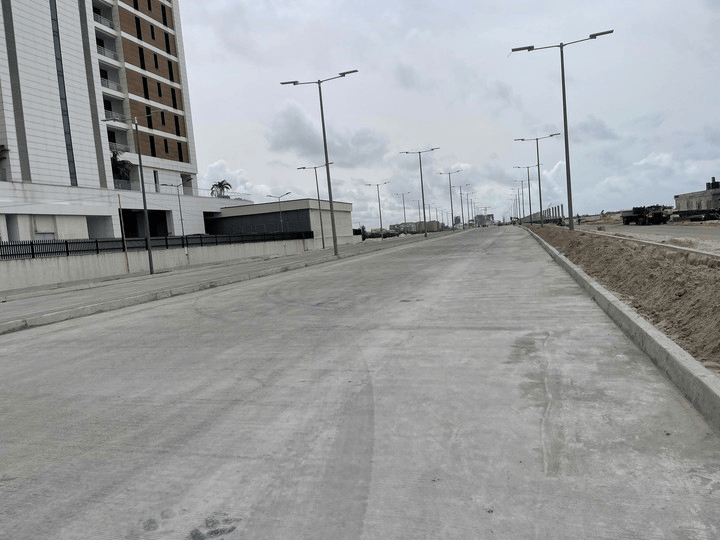A federal directive to enforce right-of-way and setback regulations along the Lagos-Calabar Coastal Highway has ignited concerns across Nigeria’s real estate sector, with developers and investors warning of legal uncertainties, possible property demolitions, and a chilling effect on investment confidence especially from foreign stakeholders.
The Federal Government’s recent warning signals a firm stance on environmental compliance and public infrastructure integrity, but the move has sparked fears of disruption and loss, particularly for developments lacking federal approval or situated within the contentious setback zones.
The dispute marks a shift in legal and regulatory tone from the traditional principle of caveat emptor (buyer beware) to caveat venditor (seller beware). The federal government, in its renewed enforcement drive, is placing greater responsibility on property sellers and approving authorities to ensure compliance with federal land laws.
Legal scholars point to the Land Use Act of 1978 and the Lands (Title Vesting) Act of 1993, which place certain lands particularly within 100 metres of the 1967 shoreline under exclusive federal jurisdiction. This legal framework was upheld in the Supreme Court’s ruling in AGF v. AG Abia & Others, which affirmed federal control over offshore lands and adjoining territories.
While state governments, such as Lagos, retain authority over urban and regional planning within their jurisdictions, the Federal Government reserves rights over lands critical to national infrastructure and environmental protection.
Real estate professionals are warning that the lack of clarity and coordination between federal and state authorities could derail projects, trigger litigations, and discourage both domestic and foreign investment. There is growing concern that properties deemed to violate setback regulations could face demolition without compensation particularly where due process has not been clearly followed.
Dr. Daramola Olapade, a senior lecturer in estate management at Obafemi Awolowo University, cautioned investors to tread carefully, recommending thorough due diligence, proper title verification, and engagement with regulatory authorities at both the state and federal levels.
“Even properties not directly affected by road expansion may suffer valuation setbacks due to the need for dual approvals and regulatory ambiguity,” he noted.
Olapade also emphasised the importance of political resolution, given that both the federal and Lagos state governments are controlled by the same political party. “With President Bola Tinubu’s unique background as a former Lagos governor and a champion of state rights, there’s potential for a negotiated path forward,” he added.
Chudi Ubosi, Chairman of the Association of Capital Market Valuers, acknowledged the supremacy of federal authority but stressed the need for clear communication and behind-the-scenes negotiations to avoid unnecessary disruptions.

Similarly, Dr. Emmanuel Mark, a past president of the International Right of Way Association (IRWA) Nigeria, underscored that the federal push may be justified from an environmental standpoint, pointing to the need for stringent regulation in the face of coastal erosion, flooding, and unchecked development.
However, he warned that revocation of land rights could result in major financial losses and deter future investments if not handled with transparency and fairness. “No investor wants to operate under legal uncertainty,” Mark cautioned.
But not all voices agree on the government’s motives. Olusola Enitan, Board Chairman of the Real Estate Professionals Association of Nigeria (REPAN), suggested that the directive may be politically charged, aimed more at unsettling perceived rivals than protecting public interest.
He questioned the selective enforcement in Lagos, noting that similar developments in other coastal states appear unaffected. “This raises questions of fairness, legality, and political motivation. Uneven enforcement could spark constitutional challenges and create a negative perception of Nigeria’s investment climate,” Enitan said.
Experts across the board are urging for a structured, inclusive approach. Recommendations include:
-
Formation of a neutral technical panel of urban planners, legal experts, environmental scientists, and engineers to define setback boundaries.
-
Creation of a Joint National Assembly Committee to mediate federal-state disputes and possibly legislate a uniform Coastal Zone Management framework.
-
Enhanced due process for all affected stakeholders, including fair compensation, clear notices, and transparent resettlement protocols.
As the Lagos-Calabar coastal highway continues to spark debate, it is clear that the balance between infrastructure development, environmental protection, and property rights remains delicate. Without a coordinated and fair resolution, Nigeria risks not only stalling a flagship infrastructure project but also undermining investor trust in one of its most dynamic real estate markets.



